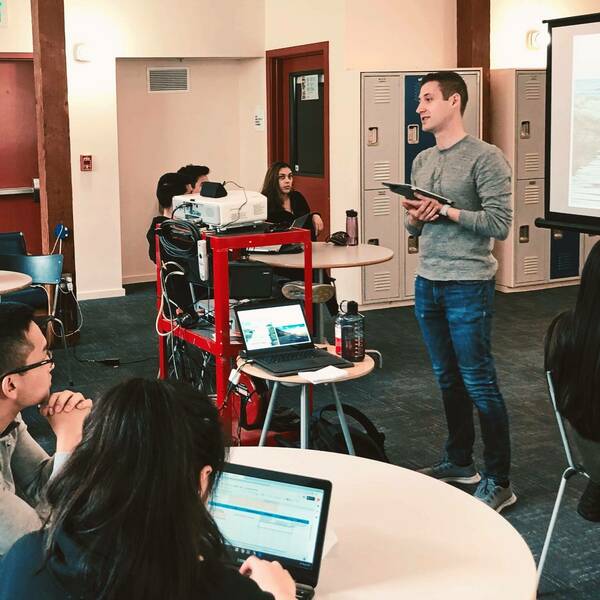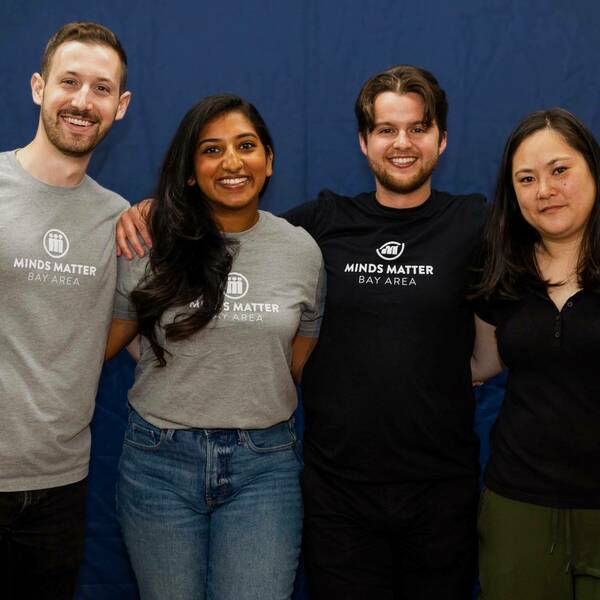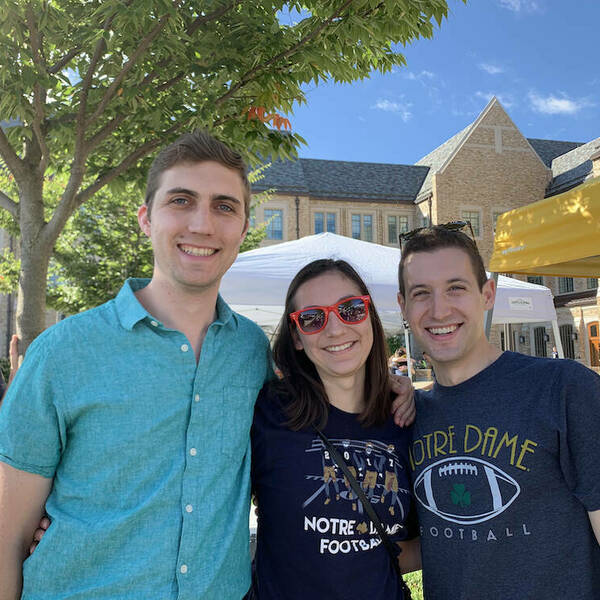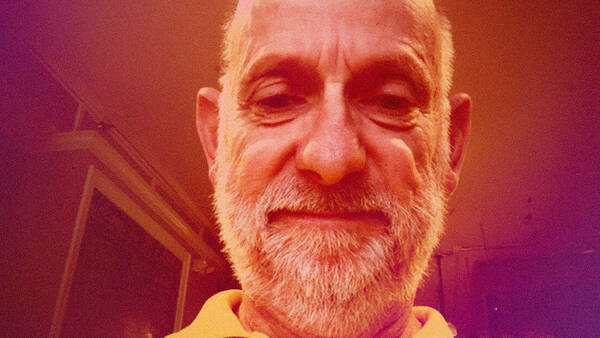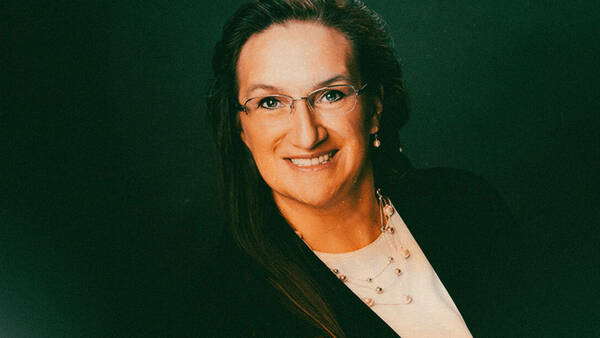As a student, teacher, and mentor, Adam Farchone ’16, '18 M.Ed. has always been interested not so much in the ‘what’ of education, but the ‘how.’
Farchone was in high school when he had a physics teacher who showed him what a more expansive approach to education could look like.
“She was teaching physics, which is really hard. I appreciated how her course was more focused on [the mindset of] — let’s prepare you to understand how you can tackle challenges, whatever they might be,” Farchone says.
Although Farchone studied chemical engineering at Notre Dame, his interest in education remained. When he learned about the Alliance for Catholic Education (ACE) Teaching Fellows program at a career fair his junior year, Farchone felt drawn to the opportunity.
“I kind of had this itch — if I don’t try it now, I’m not sure that I ever will.”
Farchone worked as an intern for ACE his senior year and, upon graduation, became an ACE Teaching Fellow. He was placed at a high school in Tampa, Florida, where he taught physics for two years. Although in many ways, it was not only physics Farchone was teaching.
“One thing they say a lot in ACE is that you’re not teaching physics, you are teaching people,” Farchone says. “That is the aspect of my ACE experience that I think about a lot — that you learn how to work with people, how to mentor people, how people learn. How does the adolescent brain work? How do you develop and understand hard things and get better at them over time?”
Farchone now works as an Engineering Program Manager in tech in San Francisco, but he has continued his work in education as a volunteer for Mind Matters Bay Area, a nonprofit devoted to guiding and preparing low-income, high-achieving students to attend selective colleges.
“The primary challenge that our organization seeks to address is called undermatching, which is when a high school student who is really smart and well qualified for a top-tier school does not end up applying to or going to those top-tier schools. That is really layered in with, for a lot of our students, being first-generation college students and their parents never having gone through this process. They're really smart, but, in other words, they're just not applying to really good schools because they don’t know whether they can get in.”
When Farchone began volunteering with the organization in 2019, he first served as a Sophomore Pod Leader and a Sophomore Mentoring Lead, designing and leading mentoring sessions aimed at developing students psychologically, emotionally, and socially.
“A lot of our mentees can struggle to find their voice, both physically and figuratively. They are often very quiet and don’t like to talk or voice strong opinions.” Farchone adds that many of the students face unique challenges that sometimes undermine their confidence.
“How do we teach them communication and English skills in a way that prepares them for the SAT but also doesn't make them feel bad that they don't speak English at home regularly?” Farchone says. “It takes a lot to teach mentees, ‘Hey, you have valuable things to say. We want to encourage the development of your voice.’”
Farchone now serves as a mentoring coach, focusing on developing best mentorship practices across the organization — or, in other words, the ‘how’ of teaching.
“The ‘how’ is — how do you engage with the mentees? How do you mentor them in a way that is meaningful, productive, efficient, and serves them in all the right ways? What does trust look and feel like between a young professional and a high school student who may share different backgrounds, and may not on the outside look like they have much in common? How do you build and foster a trusting relationship?” Farchone says. “The thing that I really enjoyed most about education was the pastoral element — the interpersonal.”
Mentees typically begin the Minds Matter program as sophomores and continue through their senior year of high school. In his time with the organization, Farchone has seen students get accepted into prestigious schools like Harvard, Johns Hopkins, and Yale — colleges that were previously ‘dream’ schools for many of his students. Farchone emphasizes how instrumental these educational opportunities are in changing a student’s life trajectory.
“If a student gets into a college that could result in changing their future income bracket, that has life-changing power, both for themselves and for future generations. There’s a lot of data to support that going to a top school is a key way to break the cycle of intergenerational poverty,” Farchone says. “If there is a mentor in your court who encourages you to dream bigger — there is hard data to support that that works. That can actually change someone's life.”

